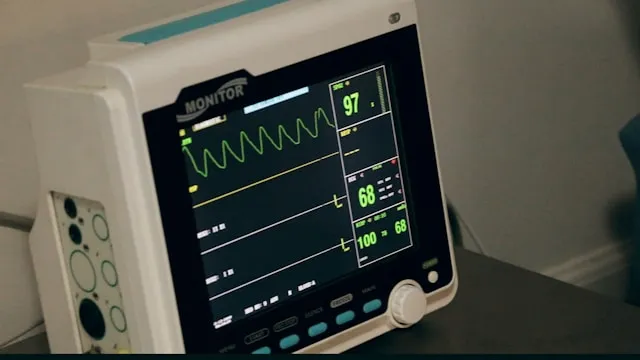What is lung function test/Pulmonary function test/spirometry?
Pulmonary Function Test or lung function test is a medical procedure that involves an evaluation of the respiratory system of the patient. This test is carried out to measure the function of lung capacity along with testing the lung and chest wall mechanics. The pulmonary function test procedure also includes examination of the patient's history, chest x-ray, and arterial blood gas analysis to determine whether the patient has a respiratory disease or not.
The lung function tests gauge:- The amount of air you can take into the lungs
- The amount of air you can blow out of your lungs and the speed with which you can do it
- How well the lungs deliver oxygen to the blood
- Strength of the breathing muscles
What are different types of test?
The different types of lung function test are:- Spirometry: This is the most common PFT test. This procedure is carried out to determine the amount of air you can breathe in and out of the lungs. Along with the amount of air exhaled, spirometry can also measure the speed with which air can be blown out of the lungs.
- Body Plethysmography: This procedure is used to measure the amount of air present in the lungs when you take a deep breath. The test also measures the amount of air left behind in the lungs once you breathe out fully.
- Lung Diffusion Capacity: This test is performed to determine how well your lungs pass oxygen into the blood stream.
Why is the test performed?
A pulmonary function test is performed to diagnose:- Different pulmonary diseases like asthma, bronchitis, emphysema, lung fibrosis and others
- Lung cancer or tumor
- Asbestosis
- Pulmonary tuberculosis
- Respiratory infections
- Pulmonary Embolism
- Pulmonary hypertension
How is the test performed?
- Spirometry, the most common PFT test, involves the patient's breathing into a mouthpiece. This mouthpiece is connected to spirometer, an instrument that measures the amount of air you breathe and the rate at which you breathe over a set period of time. You might be asked to breathe normally for or breathe heavily with forced inhaling and exhaling depending on the nature of the measurement.
- For body plethysmography, patients are seated in a transparent, sealed box and asked to breathe into a mouthpiece. The lung volume is determined with the help of the variation of pressure inside the chamber. Another procedure for this lung function test involves the patient's breathing helium or nitrogen gas through a tube. This tube is attached to a chamber and in which the concentration of the helium or nitrogen gas is measured to determine the volume of the lungs.
- For the measurement of lung diffusion capacity, patients are asked to breathe in a harmless gas, also called a tracer gas, mostly for just a single breath. The amount of gas that the patient breathes out is measured and the difference between the amount of gas inhaled and exhaled is determined. This difference allows the doctors to determine how effectively oxygen is passed from the lungs to the bloodstream.
Is it painful?
Lung function tests are generally painless, with the patients only feeling a slight discomfort when a blood sample is taken during the arterial blood gas test.What is the duration of the test?
It generally takes around 30 minutes to 90 minutes to complete a pulmonary function test.What is the cost of the test?
Pulmonary function tests generally cost between Rs. 500 and Rs. 2000 depending on the hospital settings.Who performs the test?
A pulmonary function test procedure is usually carried out by a respiratory therapist or a lab technician. In some cases a pulmonologist supervises the test.What are the associated risks of the test?
A PFT Test is a safe procedure generally. However, the procedure may lead to some complications, such as:- Light-headedness or fainting due to the heavy and rapid breathing
- For an asthmatic patient, taking this test might lead to an asthmatic attack
- In very rare cases, this procedure may result in a collapsed lung
What do the abnormal results mean?
Abnormal results from a lung function test generally mean that the patient suffers from a chest or lung disease. These diseases include:- Obstructive lung disorders including asthma, chronic bronchitis, emphysema and other infections
- Lung cancer
- Fibrosis of the lungs
- Scleroderma and sarcoidosis
- Overweight
Can I go back home on the same day?
A patient can go home immediately after the test if the results are normal. However, in case the results are abnormal, you may need to stay back to consult the doctor.
Reviewed by







